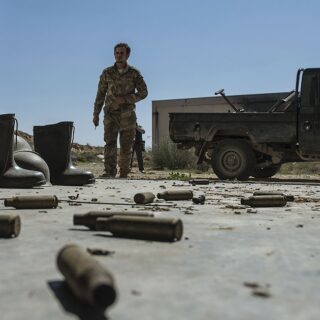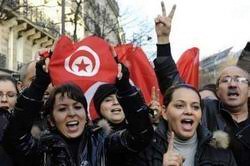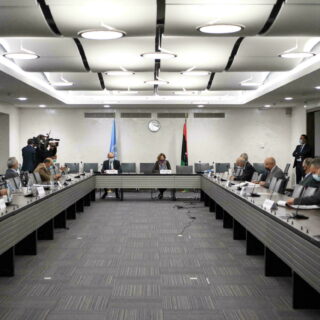
The situation in Libya continues to deteriorate after all belligerent sides have entered a spiral of violence in the capital of Tripoli and its surroundings.
This makes it increasingly difficult to explain the real situation and objectives in the conflict area, based on the multitude of narratives and analyzes, considering also the regional alliances that support the military and the political parties in conflict.
After the events of 2011 that led to the overthrow of the Muammar Gaddafi regime, Libya faces major and ongoing tensions on the part of those seeking to take control of presidential dignities or to fulfill their political agendas, both domestically and externally, which has led to a security vacuum that has helped spread terrorist organizations to several sensitive sites in Libyan territory, and has taken control of several key positions in the operation of ministerial cabinets within an affected state from a political and military point of view. The conflict situation strengthens the ambitions of the foreign parties to control Libyan resources, which has led to divisions in Libyan society. Thus, a government has emerged controlling the eastern part of the country emanating from members of the Libyan Parliament and another government in the capital of Tripoli, internationally recognized and named Government of the National Agreement, being led by Fayez Al Sarraj. This has compounded internal tensions and led to the spread of terrorist groups across Libyan territory to the detriment of domestic security and economic development. Organized crime and the ambitions of the terrorist groups to establish Islamic states in several Libyan regions, especially in the western regions, have increased. In addition to this, the interference of foreign powers, which are interested to take control of Libyan natural resources, by supporting one or other parties, has also been manifested.
In spite of this, at the beginning of 2019, the parties entered into political negotiations to reach a consensual solution, end the crisis and stop the armed conflicts, especially the military confrontations in Southern Fez, one of the strategic areas for the balance of power within the country. Against this background, Marshal Khalifa Haftar took advantage of the situation and managed to exploit the divisions between the conflicting katibates, obtaining a series of military and political victories in several regions, such as Sebha and some western areas, such as Sabrata, Surman and Ojailat, at approx. 100 km from Tripoli. He also managed to determine the local tribes to give him the military and logistical support he needed. All this made the Libyan army coming from the east of the country and headed by Haftar, after receiving external support from Egypt, Saudi Arabia, the United Arab Emirates and the US, to cross the invasion of the western region and Tripoli to release them from the grip of militias supported by terrorist groups who had managed to control everything inside Libyan capital. Before that, the 7th Brigade, headed by Mohammed Al Kani, loyal to Haftar, had attacked the capital and corrupt militias. The international community, in a first stage, managed to stop the war and put an end to the fighting, and the 7th Brigade promised to “apply the agreement not to attack Tripoli.” This battle has highlighted the contradictions that exist in the western region, which largely depends on the public sector and the followers of Gaddafi’s regime, even if they are increasingly marginalized at national level.
Meanwhile, several cities, such as Misurata or Zawiya, have taken advantage of geographical location and military influence to diversify their economic activities and expand their political role, overturning the balance of social forces, which has greatly encouraged Khalifa Haftar to implement its military plans with international and regional support, and accelerate operations on the capital. Then there was the Algerian government crisis, which constituted a proper circumstance to neutralize a powerful ally of the Government of the Agreement, known for its continued opposition to Marshall’s aspirations. In turn, France has also helped Haftar, hoping to increase its share of Libyan oil production after the French company TOTAL has withdrawn from the Iranian market. So she supported Haftar in the military operation called “Al Karameh” (Dignity) to “liberate the Libyan people from controlling terrorist militias who find support in the Government of the Tripoli Agreement.” In this context, CNN took over the statements of an emirate diplomat stating that Haftar received from Saudi Arabia and the UAE financial aid of approx. 200 million dollars for his campaign on the Libyan capital. Also, the international press published allegations by UN experts on Haftar’s use of Wing Loong Chinese drones to bomb targets, such as those used by the Emirate, Egyptian and Saudi armies, which would have been delivered on illegal army in the east. All these factors lead us to say that this battle was not limited to the horizons of the national equilibrium equation, but came to respond to international or regional aspirations that took advantage of the situation to stimulate conflict dynamics within the Libyan territory.
(red. A.A., our correspondent in Tunisia)



